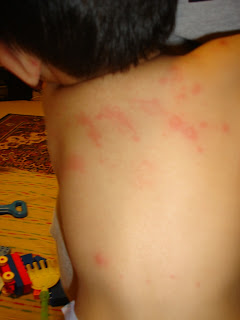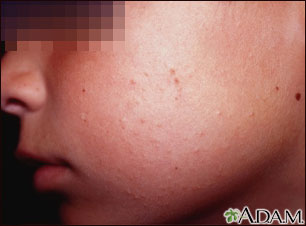Antibiotic Choices in Acute Ear Infections- Does Convenience Lead to Treatment Failure?
Macrolide antibiotics (such as azithromycin) are popular choices when treating acute ear infections in children due to a short (5 day) course of treatment, once-daily dosing, and low incidence of gastrointestinal side effects.
However, macrolide antibiotics, while generally effective against the most common pathogens in acute ear infections in children (streptococcus pneumoniae, haemophilus influenzae, and moraxella catarrhalis), are quickly losing effectiveness as resistant strains of bacteria increase. A 2007 study by the CDC demonstrated a 22.7% rate of macrolide resistance among strep. pneumoniae isolates (the most common cause of ear infections).
2004 recommendations from the American Academy of Pediatrics and the American Academy of Family Physicians advised against the use of macrolides for acute ear infections unless a patient has an immediate-type allergic reaction to penicillin. However, the rate of macrolide prescription continues to dwarf the documented rate of immediate-type penicillin allergy.
A recent meta-analysis (a study of a compliation of other studies) published in The Annals of Pharmacotherapy confirmed that this is not a good trend. Although the rate of side effects (including diarrhea) was lower in the patients treated with macrolides when compared to those patients treated with the recommended antibiotics (amoxicillin or amoxicillin/clavulate), the macrolide-treated patients were more likely to still have untreated infection present at 10-16 day follow-up.
So, when your child is diagnosed with an acute ear infection, ask the following questions:
1. Does this infection require treatment with antibiotics? (over the age of 2 years, your physician may recommend 48 hours of watchful waiting before antibiotics are given)
2. Can my child be treated with amoxicillin or amoxicillin/clavulanate?
3. What can I do to decrease the chances that my child will experience untoward side effects from the antibiotic therapy? (I generally recommend taking the medication after a meal, and often add probiotics and yogurt to decrease the risk of gastrointestinal symptoms)
Don't fall into the convenience trap- it may cost you (and your little one) in the long run!
If a drug allergy is suspected, don't hesitate to consult a Board-certified Allergist & Immunologist- I often find that patients have spent many years avoiding a particular medication and using inferior substitutes due to overdiagnosis of drug hypersensitivity.
However, macrolide antibiotics, while generally effective against the most common pathogens in acute ear infections in children (streptococcus pneumoniae, haemophilus influenzae, and moraxella catarrhalis), are quickly losing effectiveness as resistant strains of bacteria increase. A 2007 study by the CDC demonstrated a 22.7% rate of macrolide resistance among strep. pneumoniae isolates (the most common cause of ear infections).
2004 recommendations from the American Academy of Pediatrics and the American Academy of Family Physicians advised against the use of macrolides for acute ear infections unless a patient has an immediate-type allergic reaction to penicillin. However, the rate of macrolide prescription continues to dwarf the documented rate of immediate-type penicillin allergy.
A recent meta-analysis (a study of a compliation of other studies) published in The Annals of Pharmacotherapy confirmed that this is not a good trend. Although the rate of side effects (including diarrhea) was lower in the patients treated with macrolides when compared to those patients treated with the recommended antibiotics (amoxicillin or amoxicillin/clavulate), the macrolide-treated patients were more likely to still have untreated infection present at 10-16 day follow-up.
So, when your child is diagnosed with an acute ear infection, ask the following questions:
1. Does this infection require treatment with antibiotics? (over the age of 2 years, your physician may recommend 48 hours of watchful waiting before antibiotics are given)
2. Can my child be treated with amoxicillin or amoxicillin/clavulanate?
3. What can I do to decrease the chances that my child will experience untoward side effects from the antibiotic therapy? (I generally recommend taking the medication after a meal, and often add probiotics and yogurt to decrease the risk of gastrointestinal symptoms)
Don't fall into the convenience trap- it may cost you (and your little one) in the long run!
If a drug allergy is suspected, don't hesitate to consult a Board-certified Allergist & Immunologist- I often find that patients have spent many years avoiding a particular medication and using inferior substitutes due to overdiagnosis of drug hypersensitivity.



Comments
Post a Comment
Thanks for taking the time to comment on this blog's posts! Let's keep the discussion engaging and free of frivolous advertising or vulgarity. It's a family show, folks!